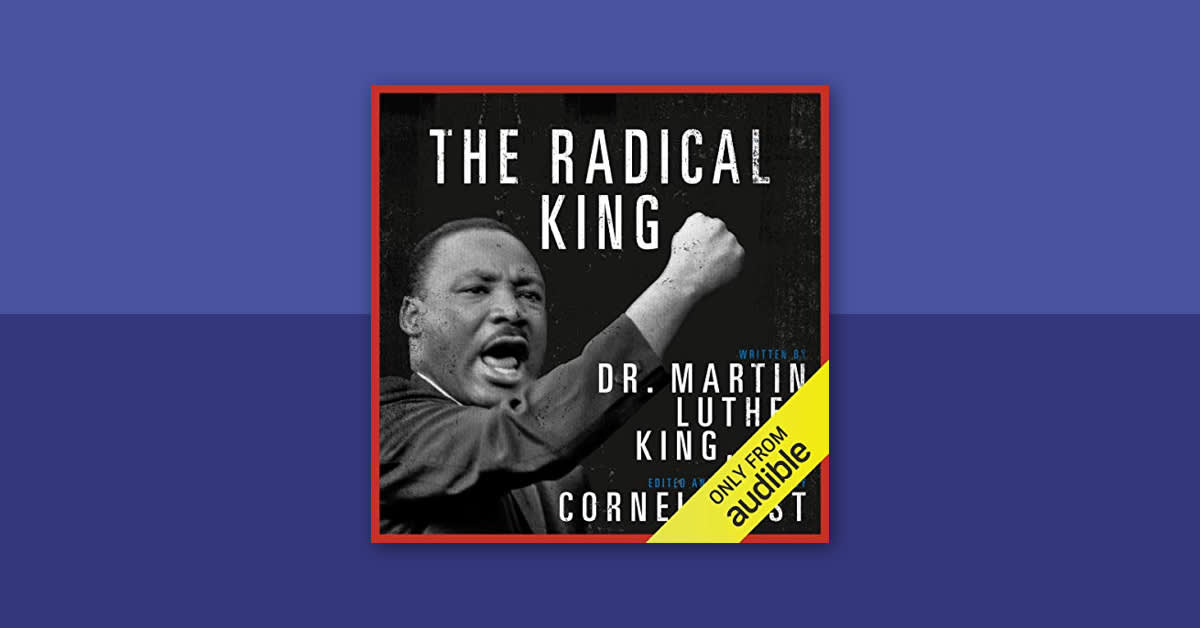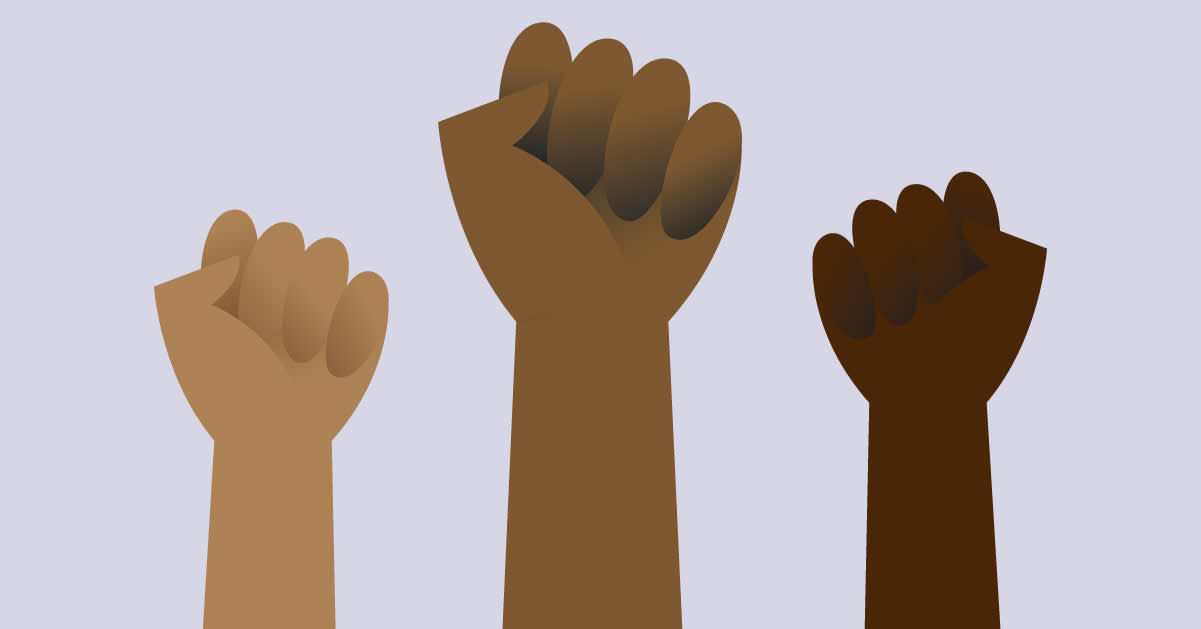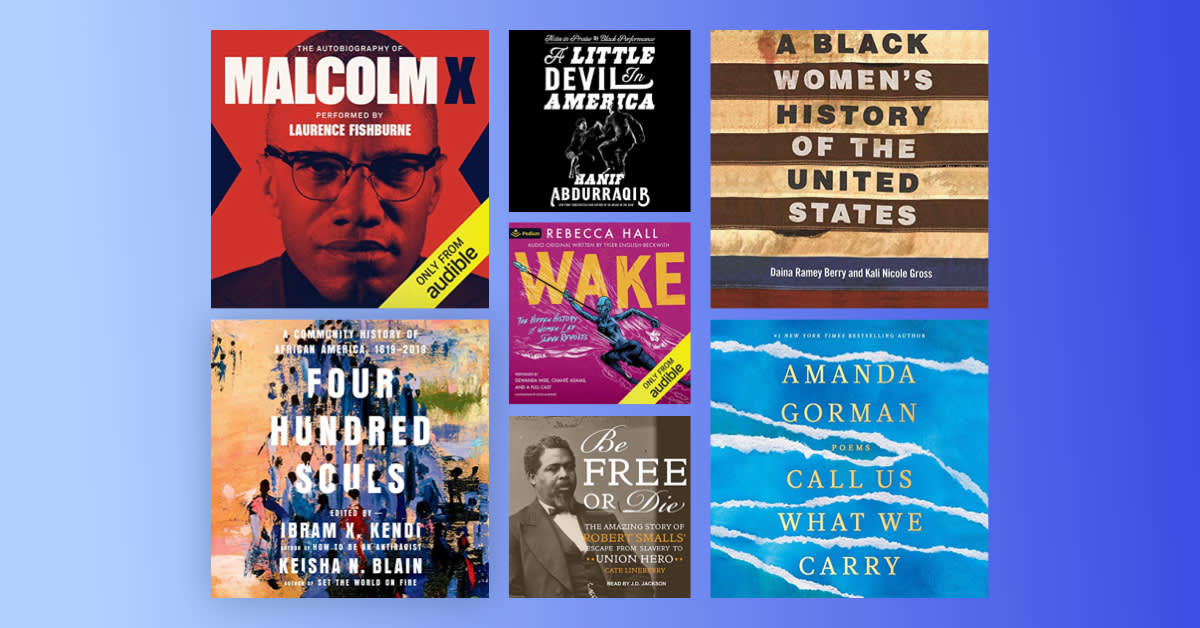Martin Luther King Jr. was a man of deep conviction and exceptional courage who became the most visible spokesman and leader in the American civil rights movement. While controversial during his lifetime, Dr. King was fundamental to ending segregation, combating racism, and affirming the right to equality for citizens of all races and colors. His actions and words continue to resonate around the world.
Born in 1929, King was the son and grandson of Baptist ministers. So, it came as no surprise that after graduating from Morehouse College at the age of 19, he went on to seminary for a Bachelor of Divinity and a PhD. While pursuing his doctorate, he became a pastor. Throughout his adulthood, up until his assassination in 1968, Dr. King traveled the country, including the Jim Crow South where rigid anti-Black laws were a way of life, speaking out against racism and injustice. In addition to his speeches, he worked with other members of the movement to coordinate marches, including the 1963 March on Washington for Jobs and Freedom and the 1965 Selma-to-Montgomery March for voting rights. In 1964, he was awarded the Nobel Peace Prize for his nonviolent resistance to racial prejudice in the United States. He was only 35, making him the youngest person to receive that honor at the time.
Through it all, he wrote. A Baptist pastor by trade and a scholar, orator, and activist by calling, Dr. King wrote in a variety of forms, including articles, sermons, speeches, and books. He wrote the famed “Letter from Birmingham Jail” after being arrested for disregarding an injunction against protesting or demonstrating of any kind. This treatise on the moral responsibility to break unjust laws was published in newspapers nationwide and would later be widely cited in writings about justice. In his lifetime, he published six books about his experiences, goals, and thoughts on the present and future. Over the past half century, his collected works have been republished, reimagined, and reproduced in many formats.
For centuries to come, the name, voice, and writings of Dr. Martin Luther King Jr. will live on to affirm the values of nonviolent protest, good trouble, and racial justice. In the present as a nation, we celebrate his life and legacy on the third Monday of every January. As Martin Luther King Jr. Day approaches, what better way to pay tribute to this great man and iconic leader than by reflecting on some of his most powerful words? We offer you our collection of memorable quotes and impactful passages from Dr. Martin Luther King Jr. about love, justice, dignity, and the greater good.
Iconic Quotes and Famous Speeches
1. "I have a dream that my four little children will one day live in a nation where they will not be judged by the color of their skin but by the content of their character." — "I Have a Dream Speech"
2. "This is our hope. This is the faith that I go back to the South with. With this faith, we will be able to hew out of the mountain of despair a stone of hope. With this faith we will be able to transform the jangling discords of our nation into a beautiful symphony of brotherhood. With this faith we will be able to work together, to pray together, to struggle together, to go to jail together, to stand up for freedom together, knowing that we will be free one day." — "I Have a Dream Speech"
3. "The whirlwinds of revolt will continue to shake the foundations of our nation until the bright day of justice emerges." — "I Have a Dream Speech"
4. "Injustice anywhere is a threat to justice everywhere. We are caught in an inescapable network of mutuality, tied in a single garment of destiny. Whatever affects one directly affects all indirectly." — "Letter from Birmingham Jail"
5. "The ultimate measure of a man is not where he stands in moments of comfort and convenience, but where he stands at times of challenge and controversy." — "Strength to Love" from A Gift of Love
6. "Too long has our beloved Southland been bogged down in the tragic attempt to live in monologue rather than dialogue." — "Letter from Birmingham Jail"
7. "We know through painful experience that freedom is never voluntarily given by the oppressor; it must be demanded by the oppressed." — "Letter from Birmingham Jail"
8. "Unity has never meant uniformity." — Why We Can’t Wait
9. "Oppressed people cannot remain oppressed forever. The urge for freedom will eventually come." — "Letter from Birmingham Jail"
10. "There is something in the soul that cries out for freedom." — "Birth of a New Nation"
11. "There’s something about love that builds up and is creative. There is something about hate that tears down and is destructive." — "Love Your Enemies" from The Radical King
12. "Hate distorts the personality of the hater." — "Love Your Enemies" from The Radical King
13. "The arc of the moral universe is long, but it bends toward justice." — "The Other America" from The Radical King
14. "The mind is the standard of a man." — "The Future of Integration"
15. "There are literally two Americas. One America is flowing with the milk of prosperity and the honey of equality. That America is the habitat of millions of people who have food and material necessities for their bodies, culture and education for their minds, freedom and human dignity for their spirits. That America is made up of millions of young people who grow up in the sunlight of opportunity. But... there is another America. And that other America has a daily ugliness about it that transforms the buoyancy of hope into the fatigue of despair." — "The Other America" from The Radical King
16. "I have almost reached the regrettable conclusion that the Negro's great stumbling block in the stride toward freedom is not the White Citizens Councillor or the Ku Klux Klanner but the white moderate who is more devoted to order than to justice... Shallow understanding from people of good will is more frustrating than absolute misunderstanding from people of ill will. Lukewarm acceptance is much more bewildering than outright rejection." — "Letter from Birmingham Jail"
17. "The great tragedy is that the nation continues in its national policy to ignore the conditions that brought the riots of the rebellions into being. For in the final analysis, the riot is the language of the unheard. And what is it that America’s failed to hear? It’s failed to hear that the plight of the Negro poor has worsened over the last few years. It has failed to hear that the promises of justice and freedom have not been met. It has failed to hear that large segments of white society are more concerned about tranquility and the status quo than about justice, humanity, and equality, and it is still true. It is still true that these things are being ignored." — "The Other America" from The Radical King
18. "Something is happening in our world. The masses of people are rising up." — "I've Been to the Mountaintop"
19. "Let us develop a kind of dangerous unselfishness." — "I've Been to the Mountaintop"
Martin Luther King Jr. On Nonviolence
20. "Occasionally in life one develops a conviction so precious and meaningful that he will stand on it till the end. That is what I have found in nonviolence." — The Autobiography of Martin Luther King, Jr.
21. "When I went to Montgomery as a pastor, I had not the slightest idea that I would later become involved in a crisis in which nonviolent resistance would be applicable. I neither started the protest nor suggested it. I simply responded to the call of the people for a spokesman. When the protest began, my mind, consciously or unconsciously, was driven back to the Sermon on the Mount, with its sublime teachings on love, and the Gandhian method of nonviolent resistance. As the days unfolded, I came to see the power of nonviolence more and more. Living through the actual experience of the protest, nonviolence became more than a method to which I gave intellectual assent; it became a commitment to a way of life. Many of the things that I had not cleared up intellectually concerning nonviolence were now solved in the sphere of practical action." — "Pilgrimage to Nonviolence" from Stride Toward Freedom
22. "From the beginning a basic philosophy guided the movement. This guiding principle has since been referred to variously as nonviolent resistance, noncooperation, and passive resistance. But in the first days of the protest none of these expressions was mentioned; the phrase most often heard was 'Christian love.' It was the Sermon on the Mount, rather than a doctrine of passive resistance, that initially inspired the Negroes of Montgomery to dignified social action. It was Jesus of Nazareth that stirred the Negroes to protest with the creative weapon of love." — "The Violence of Desperate Men" from The Radical King
23. "I had come to see early that the Christian doctrine of love operating through the Gandhian method of nonviolence was one of the most potent weapons available to the Negro in his struggle for freedom. About a week after the protest started, a white woman who understood and sympathized with the Negroes' efforts wrote a letter to the editor of the Montgomery Advertiser comparing the bus protest with the Gandhian movement in India. Miss Juliette Morgan, sensitive and frail, did not long survive the rejection and condemnation of the white community, but long before she died in the summer of 1957, the name of Mahatma Gandhi was well known in Montgomery. People who had never heard of the little brown saint of India were now saying his name with an air of familiarity. Nonviolent resistance had emerged as the technique of the movement, while love stood as the regulating ideal. In other words, Christ furnished the spirit and motivation while Gandhi furnished the method." — "The Violence of Desperate Men" from The Radical King
24. "The phrase 'passive resistance' often gives the false impression that this is a sort of ‘do-nothing method’ in which the resistor quietly and passively accepts evil. But nothing is further from the truth. For while the nonviolent resister is passive in the sense that he is not physically aggressive toward his opponent, his mind and emotions are always active, constantly seeking to persuade his opponent that he is wrong. The method is passive physically, but strongly active spiritually. It is not passive nonresistance to evil, it is active nonviolent resistance to evil." — "Pilgrimage to Nonviolence" from Stride Toward Freedom
25. "I am still convinced that violence creates many more social problems than it solves... But after saying this, I must say that it would be an act of moral irresponsibility for me to condemn riots and not be as vigorous in condemning the continued existence of intolerable conditions in our society, which cause people to feel so angry and bitter that they conclude they have no alternative to get attention but to engage in this kind of violence." — "The Future of Integration"
26. "Admittedly, nonviolence in the truest sense is not a strategy that one uses simply because it is expedient at the moment; nonviolence is ultimately a way of life that men live by because of the sheer morality of its claim. But even granting this, the willingness to use nonviolence as a technique is a step forward. For he who goes this far is more likely to adopt nonviolence later as a way of life." — "The Violence of Desperate Men" from The Radical King
27. "In any nonviolent campaign there are four basic steps: collection of the facts to determine whether injustices are alive, negotiation, self-purification, and direct action." — "Letter from Birmingham Jail"
28. "The aftermath of nonviolence is the creation of the beloved community. The aftermath of nonviolence is redemption. The aftermath of nonviolence is reconciliation. The aftermath of violence are emptiness and bitterness. This is the thing I’m concerned about. Let us fight passionately and unrelentingly for the goals of justice and peace. But let’s be sure that our hands are clean in this struggle. Let us never fight with falsehood and violence and hate and malice, but always fight with love, so that when the day comes that the walls of segregation have completely crumbled in Montgomery, that we will be able to live with people as their brothers and sisters." — "Birth of a New Nation"
29. "I am not afraid of the word 'tension.' I have earnestly worked and preached against violent tension, but there is a type of constructive nonviolent tension that is necessary for growth." — "Letter from Birmingham Jail"
Martin Luther King Jr. On Faith
30. "The words I spoke to God that midnight are still vivid in my memory: 'Lord, I'm down here trying to do what's right. I think I'm right. I am here taking a stand for what I believe is right. But Lord, I must confess that I'm weak now, I'm faltering. I'm losing my courage. Now, I am afraid. And I can't let the people see me like this because if they see me weak and losing my courage, they will begin to get weak. The people are looking to me for leadership, and if I stand before them without strength and courage, they too will falter. I am at the end of my powers. I have nothing left. I've come to the point where I can't face it alone.'" — "The Violence of Desperate Men" from The Radical King
31. "It seemed as though I could hear the quiet assurance of an inner voice saying: 'Martin Luther, stand up for righteousness. Stand up for justice. Stand up for truth. And lo, I will be with you. Even until the end of the world.'" — "The Violence of Desperate Men" from The Radical King
32. "I tell you I've seen the lightning flash. I've heard the thunder roar. I've felt sin breakers dashing trying to conquer my soul. But I heard the voice of Jesus saying still to fight on. He promised never to leave me alone. At that moment I experienced the presence of the Divine as I had never experienced Him before. Almost at once my fears began to go. My uncertainty disappeared. I was ready to face anything." — "The Violence of Desperate Men" from The Radical King
33. "Let us keep moving... with the faith that what we are doing is right, and with the even greater faith that God is with us in the struggle." — "The Violence of Desperate Men" from The Radical King
34. "Our most fruitful course is to stand firm, move forward nonviolently, accept disappointments and cling to hope. Our determined refusal not to be stopped will eventually open the door to fulfillment. By recognizing the necessity of suffering in a righteous cause, we may achieve our humanity’s full stature." — "Where Do We Go from Here"
Martin Luther King Jr. On Love
35. "I have also decided to stick with love, for I know that love is ultimately the only answer to mankind's problems. And I'm going to talk about it everywhere I go. I know it isn't popular to talk about it in some circles today. And I'm not talking about emotional bosh when I talk about love; I'm talking about a strong, demanding love. For I have seen too much hate. I've seen too much hate on the faces of sheriffs in the South. I've seen hate on the faces of too many Klansmen and too many White Citizens Councillors in the South to want to hate, myself, because every time I see it, I know that it does something to their faces and their personalities, and I say to myself that hate is too great a burden to bear. I have decided to love. If you are seeking the highest good, I think you can find it through love." — "Where Do We Go from Here"
36. "In the final analysis, love is not this sentimental something that we talk about. It’s not merely an emotional something. Love is creative, understanding goodwill for all men. It is the refusal to defeat any individual. When you rise to the level of love, of its great beauty and power, you seek only to defeat evil systems. Individuals who happen to be caught up in that system, you love, but you seek to defeat the system." — "Love Your Enemies" from The Radical King
37. "Somewhere somebody must have some sense. Men must see that force begets force, hate begets hate, toughness begets toughness. And it is all a descending spiral, ultimately ending in destruction for all and everybody. Somebody must have sense enough and morality enough to cut off the chain of hate and the chain of evil in the universe. And you do that by love." — "Love Your Enemies" from The Radical King
38. "When you start hating anybody, it destroys the very center of your creative response to life and the universe; so love everybody. Hate at any point is a cancer that gnaws away at the very vital center of your life and your existence. It is like eroding acid that eats away the best and the objective center of your life." — "Love Your Enemies" from The Radical King
39. "In our quest to make neighborly love a reality, we have, in addition to the inspiring example of the good Samaritan, the magnanimous life of our Christ to guide us. His altruism was universal, for he thought of all men, even publicans and sinners, as brothers. His altruism was dangerous, for he willingly traveled hazardous roads in a cause he knew was right. His altruism was excessive, for he chose to die on Calvary, history’s most magnificent expression of obedience to the unenforceable." — "Who is My Neighbor"
Martin Luther King Jr. On Justice
40. "How does one determine when a law is just or unjust? A just law is a man-made code that squares with the moral law, or the law of God. An unjust law is a code that is out of harmony with the moral law. To put it in the terms of St. Thomas Aquinas, an unjust law is a human law that is not rooted in eternal and natural law. Any law that uplifts human personality is just. Any law that degrades human personality is unjust. All segregation statutes are unjust because segregation distorts the soul and damages the personality. It gives the segregator a false sense of superiority and the segregated a false sense of inferiority." — "Letter from Birmingham Jail"
41. "America has failed to hear that large segments of white society are more concerned about tranquility and the status quo than about justice, humanity, and equality. And so it is still true that our nation’s summer of riots are caused by our nation’s winters of delay. As long as justice is postponed, we will be on the verge of social destruction." — "The Future of Integration"
42. "Now is the time to make real the promises of democracy. Now is the time to rise from the dark and desolate valley of segregation to the sunlit path of racial justice. Now is the time to lift our nation from the quicksands of racial injustice to the solid rock of brotherhood. Now is the time to make justice a reality for all of God's children." — "I Have a Dream Speech"
43. "For when people get caught up with that which is right and they are willing to sacrifice for it, there is no stopping point short of victory." — "I've Been to the Mountaintop"
44. "The true neighbor will risk his position, his prestige, and even his life for the welfare of others. In dangerous valleys and hazardous pathways, he will lift some bruised and beaten brother to a higher and more noble life." — "Who is My Neighbor"
45. "We will not be satisfied until justice rolls down like waters, and righteousness like a mighty stream." — "I Have a Dream Speech"
46. "The new era of the struggle is now a struggle for genuine equality." — "The Future of Integration"
47. "A social movement that only moves people is merely a revolt. A movement that changes both people and institutions is a revolution." — Why We Can’t Wait
Martin Luther King Jr. On Economy
48. "[M]ore and more, we've got to begin to ask questions about the whole society. We are called upon to help the discouraged beggars in life's marketplace. But one day we must come to see that an edifice which produces beggars needs restructuring." — "Where Do We Go from Here"
49. "The problem is not only unemployment but it is underemployment. The fact is that most of the poverty stricken people in our country work every day, but they make wages so low that they cannot begin to function in the mainstream of economic life of our nation." — "The Future of Integration"
50. "Communism forgets that life is individual. Capitalism forgets that life is social. And the kingdom of brotherhood is found neither in the thesis of communism nor the antithesis of capitalism, but in a higher synthesis. It is found in a higher synthesis that combines the truths of both. Now, when I say questioning the whole society, it means ultimately coming to see that the problem of racism, the problem of economic exploitation, and the problem of war are all tied together. These are the triple evils that are interrelated." — "Where Do We Go from Here"
Martin Luther King Jr. On Endurance and Progress
51. "When our days become dreary with low-hovering clouds of despair, and when our nights become darker than a thousand midnights, let us remember that there is a creative force in this universe working to pull down the gigantic mountains of evil, a power that is able to make a way out of no way and transform dark yesterdays into bright tomorrows." — "Where Do We Go from Here"
52. "There comes a time when the cup of endurance runs over and men are no longer willing to be plunged into an abyss of injustice where they experience the bleakness of corroding despair." — "Letter from Birmingham Jail"
53. "Somewhere, we must come to see that human progress never rolls in on the wheels of inevitability. It comes through the tireless effort and the persistent work of dedicated individuals who are willing to be coworkers with God. Without this hard work, time itself becomes an ally of the primitive forces of social stagnation." — "The Future of Integration"
54. "We will have to repent in this generation not merely for the vitriolic words and actions of the bad people but for the appalling silence of the good people." — "Letter from Birmingham Jail"
55. "We cannot walk alone. And as we walk, we must make the pledge that we shall always march ahead. We cannot turn back." — "I Have a Dream Speech"
56. "Let us rise up tonight with a greater readiness. Let us stand with a greater determination. And let us move on in these powerful days, these days of challenge to make America what it ought to be. We have an opportunity to make America a better nation." — "I've Been to the Mountaintop"
57. "[R]ise up and know that as you struggle for justice, you do not struggle alone." — "Birth of a New Nation"
58. "Whenever men and women straighten their backs up, they are going somewhere, because a man can't ride your back unless it is bent." — "I've Been to the Mountaintop"
59. "We have come a long, long way but we still have a long, long way to go before we become a fully integrated and just society." — "The Future of Integration"
Martin Luther King Jr. On Privilege
60. "[N]o one gives up his privileges without strong resistance." — "The Violence of Desperate Men" from The Radical King
61. "It does not help the Negro for unfeeling, insensitive whites to say to him that ethnic groups that voluntarily came to this country 150 years ago have now risen beyond the Negro, who has been here more than 344 years but was brought here in chains involuntarily. The people who project this argument never seem to realize that no other ethnic group have been slaves on American soil. They do not stop to realize that America made the Negro’s color a stigma." — "The Future of Integration"
62. "I guess this is all right to say to a man that he should lift himself by his own boot straps, but it is a cruel jest to say to a bootless man that he should lift himself by his own boot straps." — "The Future of Integration"
Martin Luther King Jr. On Democracy and Freedom
63. "Democracy is the greatest form of government to my mind that man has ever conceived, but the weakness is that we have never touched it." — "Love Your Enemies" from The Radical King
64. "There seems to be a throbbing desire, there seems to be an internal desire for freedom within the soul of every man. And it’s there; it might not break forth in the beginning, but eventually it breaks out. Men realize that, that freedom is something basic. To rob a man of his freedom is to take from him the essential basis of his manhood. To take from him his freedom is to rob him of something of God’s image." — "Birth of a New Nation"
65. "Freedom is never given to anybody. For the oppressor has you in domination because he plans to keep you there, and he never voluntarily gives it up. And that is where the strong resistance comes." — "Birth of a New Nation"
66. "Freedom only comes through persistent revolt, through persistent agitation, through persistently rising up against the system of evil." — "Birth of a New Nation"
Martin Luther King Jr. On Death
67. "Death comes to every individual. There is an amazing democracy about death. It is not aristocracy for some of the people, but a democracy for all of the people. Kings die and beggars die; rich men and poor men die; old people die and young people die. Death comes to the innocent and it comes to the guilty. Death is the irreducible common denominator of all men." — From "Eulogy for the Young Victims of the 16th Street Baptist Church Bombing"
Find more of the works of the Rev. Dr. Martin Luther King, Jr.





